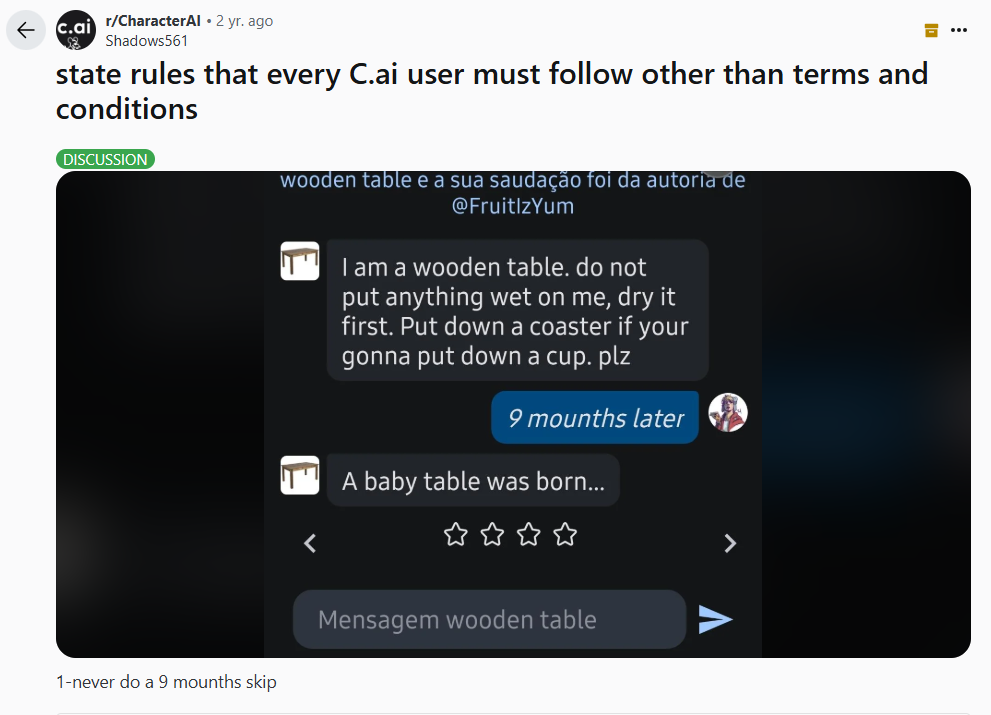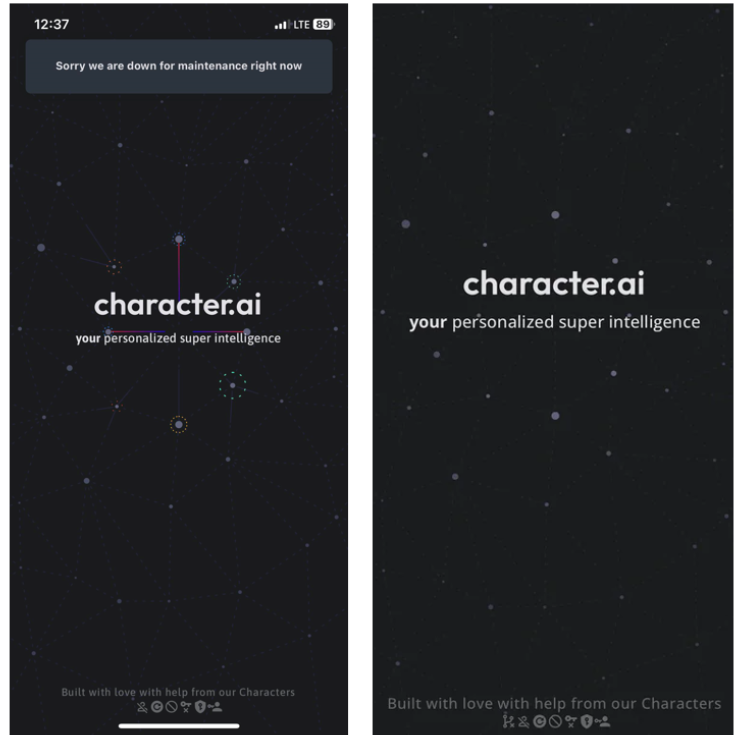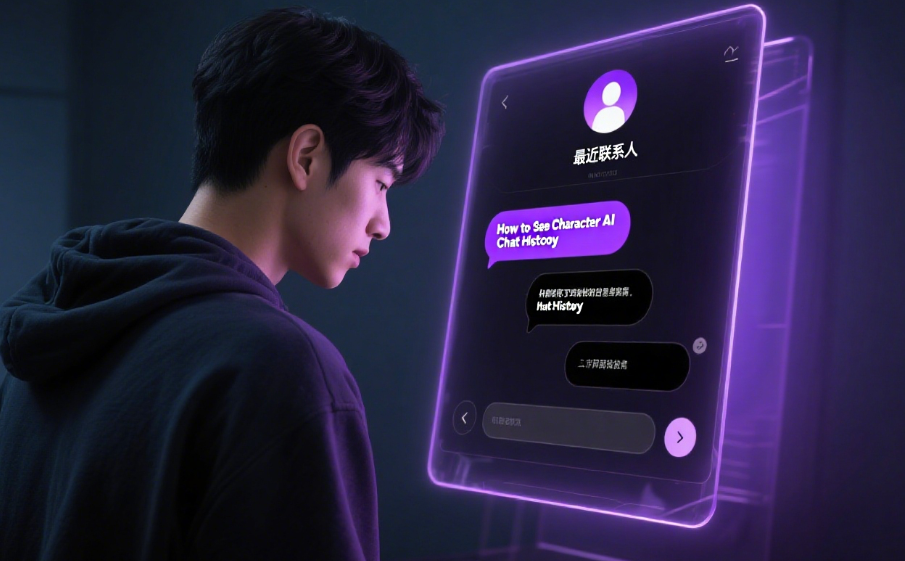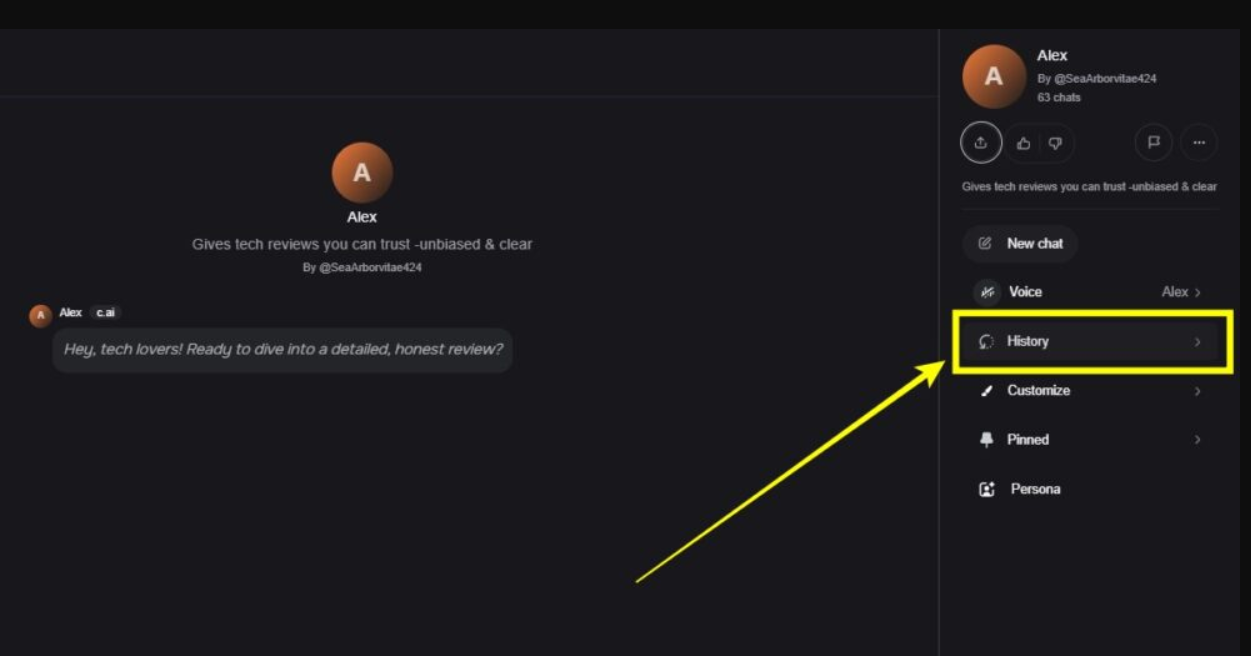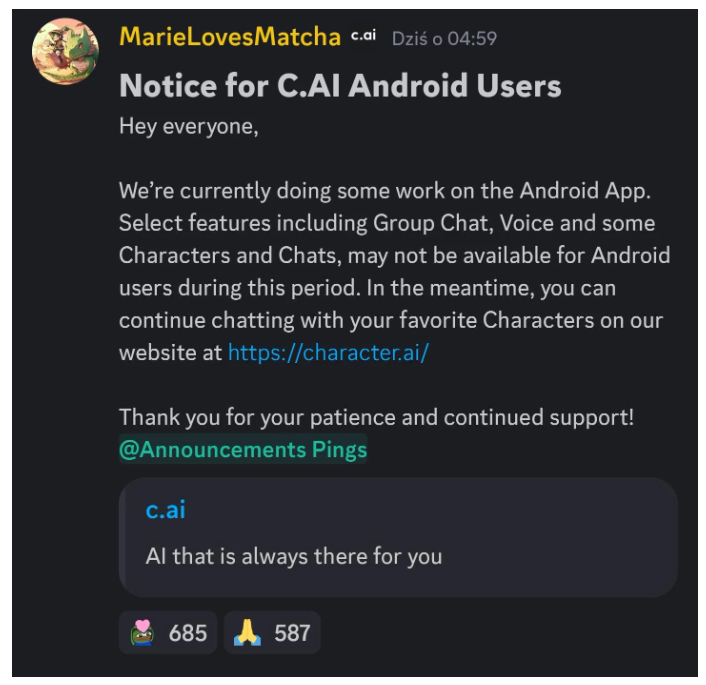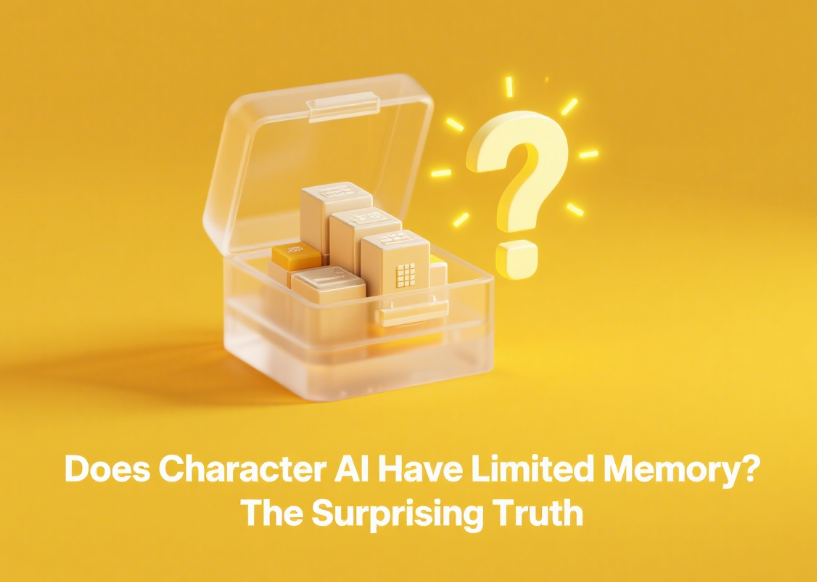
You're deep in conversation with your favorite AI companion on Character AI, sharing stories and building rapport, when suddenly... it forgets crucial details you mentioned just moments ago. Frustrating, right? This common experience leads many users to ask: Does Character AI Have Limited Memory? The answer is a nuanced "yes," but understanding why and how this limitation works is key to unlocking better interactions. Forgetfulness isn't a bug; it's often a deliberate design choice balancing capability, cost, and user experience. Let's dive into the fascinating mechanics behind Character AI's memory and what it means for you in 2025.
Understanding the "Memory" in AI Chatbots
Before dissecting Character AI's specifics, it's vital to grasp what "memory" means for AI. Unlike humans, AI doesn't have persistent, autobiographical memory. Instead, conversational AI models like those powering Character AI primarily rely on context windows. This window represents the amount of recent conversation history (measured in tokens, roughly equivalent to words or word parts) the AI can consider when generating its next response. Think of it as the AI only being able to "see" or "remember" the last X words of your chat.
The Reality of Character AI's Limited Memory
Yes, Character AI operates with a Limited Memory constraint. As of 2025, while the exact technical specifications of their proprietary models aren't publicly disclosed, user experience and common industry practices point to significant context window limitations:
How Limited Memory Manifests
Forgetting Details: The AI might forget your name, preferences, or key plot points discussed earlier in a long conversation.
Context Drift: Conversations can subtly shift topic if the core subject isn't constantly reinforced within the recent context.
Repetition: The AI might reintroduce ideas or ask questions it seemingly "forgot" the answers to.
Inability to Reference Distant Past: Recalling specific details from chats hours or days old within a new session is generally impossible without user re-input.
Why Limited Memory Exists (The Trade-Offs)
Computational Cost: Processing massive context windows requires exponentially more computational power (GPU time), significantly increasing operational costs.
Performance & Speed: Larger context windows can slow down response generation times, harming the real-time chat experience.
Focus & Relevance: Extremely long contexts can sometimes dilute focus, making it harder for the AI to prioritize the most relevant recent information.
Technical Complexity: Efficiently managing and retrieving information from very large contexts is an ongoing research challenge.
Character AI vs. The Memory Frontier (2025)
While Character AI exhibits Limited Memory, the field of AI is rapidly advancing. Models like Anthropic's Claude 3 or OpenAI's GPT-4 Turbo variants boast context windows reaching 128K tokens or more – theoretically capable of "remembering" entire novels within a single conversation. However, Character AI's focus on free access, massive user base, and character-driven interactions likely necessitates prioritizing cost-efficiency and speed over ultra-long context for now. Their challenge is balancing user expectations for continuity with sustainable operations.
Strategies to Work Within Character AI's Memory Limits
Knowing about the Limited Memory doesn't mean you're powerless. Use these strategies for smoother interactions:
Reinforce Key Information: Gently remind the AI of crucial details (your name, the scenario) periodically within the conversation flow.
Use Summarization: Briefly summarize important plot points or decisions if the conversation spans many exchanges.
Leverage Character Definitions: Utilize the character's "Definition" field effectively. Information placed here during creation is more persistently available to the AI than chat history.
Manage Expectations: Approach chats understanding that deep, ultra-long-term continuity isn't the platform's current strength; enjoy it for dynamic, creative exchanges.
Start New Chats for New Topics: Don't be afraid to initiate a fresh conversation thread when significantly shifting topics.
The Future of Memory in Character AI
Looking beyond 2025, we can anticipate improvements. Research into more efficient context handling (like retrieval-augmented generation - RAG) and cheaper compute could allow Character AI to offer longer effective memory without prohibitive costs. Features like user-controlled "memory banks" where key facts are stored externally and injected into the context as needed are also plausible future developments. The goal isn't infinite memory, but smarter, more user-directed memory management.
Frequently Asked Questions (FAQs)
Q1: Does Character AI remember my past conversations?
A1: Generally, no, not in a persistent, recallable way across different chat sessions. Each session typically starts with limited context. While the platform may store chat logs for user access or (anonymized) improvement purposes, the AI model itself doesn't retain memory of past sessions to inform new ones automatically. Your history is visible to *you*, but not actively remembered by the AI character in a new chat.
Q2: Can I increase Character AI's memory?
A2: As a user, you cannot directly increase the technical context window size of the underlying AI model. This is fixed by Character AI's infrastructure. However, you can use the strategies mentioned above (reinforcement, summarization, good character definitions) to work more effectively within the existing Limited Memory constraints.
Q3: Is Character AI's Limited Memory a sign it's worse than other AIs?
A3: Not necessarily. Limited Memory is a common trade-off. While some competitors offer larger context windows, they often come at a higher cost (subscription fees) or potentially slower speeds. Character AI excels in its core offering: free, accessible, and highly engaging character-based interactions. Its memory limitations are a design choice balancing performance, cost, and accessibility for its massive user base.
Q4: Will Character AI ever get better memory?
A4: It's highly likely. AI memory and context handling are active areas of research and development. As technology improves and becomes more cost-effective, we can expect Character AI and similar platforms to gradually increase effective context lengths or implement smarter memory-augmentation techniques in the coming years.
Conclusion: Embracing the Limits, Anticipating the Future
So, does Character AI Have Limited Memory? Absolutely. This Limited Memory is a fundamental characteristic of its current large language model architecture and a practical necessity for managing scale and cost. While it can lead to moments of forgetfulness, understanding this limitation allows users to adapt their interaction style – using reinforcement and clear communication within the conversation window. Rather than a critical flaw, view it as a parameter shaping the unique, dynamic, and sometimes delightfully unpredictable nature of chatting with AI characters. As technology races forward, Character AI's ability to remember and maintain context is poised to improve, promising even richer and more coherent interactions in the future. For now, mastering the art of conversation within these bounds unlocks the platform's true potential for creativity and connection.

